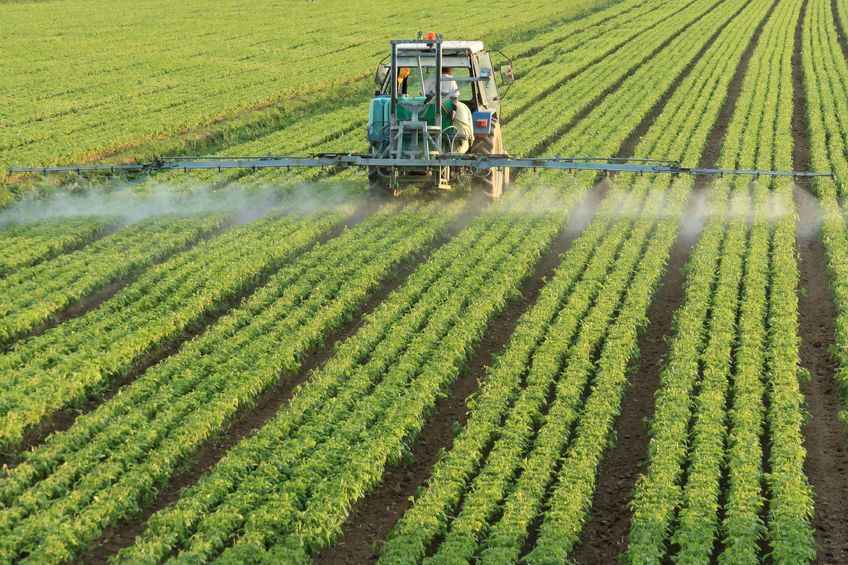
The first round of an EU vote to renew glyphosate for a 10 year period has failed to attract sufficient support, with the industry now looking at a possible shorter licence period.
An initial round of votes on whether to renew glyphosate, the active agent of Monsanto’s weed killer Roundup, has begun on Wednesday (25 October).
The first round of talks will force the European Commission to negotiate a shorter renewal period with EU countries, it has been reported.
16 countries - Bulgaria, Denmark, Czech Republic, Estonia, Ireland, Spain, Cyprus, Latvia, Lithuania, Hungary, the Netherlands, Poland, Romania, Slovakia, Finland and the UK - voted in favour of the renewal.
That falls short of the threshold needed to reach a qualified majority.
Germany and Portugal abstained while Belgium, Greece, Croatia, France, Italy, Luxembourg, Malta, Austria, Slovenia and Sweden voted against the renewal.
The European Commission seems to have backtracked from its initial proposal to renew the license for 10 years, and is now looking for support to renew glyphosate for a shorter licence.
Crop Protection Association (CPA) chief executive Sarah Mukherjee said the news is "disappointing".
"It is disappointing that some Member States are continuing to ignore the science, risking the livelihoods of European farmers and the continued availability of safe, healthy, affordable food for consumers."
'Damages credibility'
The NFU said it was also "disappointed" that no agreement had been reached over the reauthorisation.
Guy Smith, NFU Vice President, said: “The overwhelming weight of science and evidence shows that glyphosate is perfectly safe when used correctly.
“This has been the conclusion reached by regulatory bodies around the world, including the EU’s two leading regulatory bodies – the European Food Safety Authority (EFSA) and the European Chemicals Agency (ECHA).
“The continued politicisation of this decision damages the credibility of the EU’s regulatory bodies and undermines the regulatory process. It also has huge implications for farming in the UK and across Europe.
“Glyphosate reduces the need to use other herbicides, it helps to protect soil and cut greenhouse gas emissions by reducing the need for ploughing, and it enables farmers in this country to grow crops that help produce safe, affordable, high quality British food.
“There is no reason why glyphosate should not be reauthorised for 15 years, never mind the ten years the Commission had proposed. We would urge members states to look at the science and base their decision on the evidence – which shows there is no reason not to reauthorise glyphosate.”
UK 'stood firm'
CLA Deputy President Tim Breitmeyer said the rural organisation, which represents farmers, is "grateful" that the UK government "stood firm behind the scientific evidence".
“It is vital to remember that the EU’s own expert agencies have concluded that glyphosate is safe. However, too many other EU countries have caved in to a concerted highly politicised scaremongering campaign,” Mr Breitmeyer said.
“This decision not to allow the relicense is a disaster for agriculture and the environment. It will dramatically impact the ability of farmers to keep at bay the spread of grassweed infestation and will ultimately harm the environment.
“It will force farmers to use a shrinking portfolio of narrow spectrum chemicals, encourage resistance in the seed bank and steer farmers away from conservation tillage.
“We will urge the EU Commission to look at whatever can now be done to mitigate this disastrous and unnecessary situation.”
Controversy
The news follows mounting opposition to the widely used pesticide grows in several powerful agricultural countries, such as France.
The EU passed an 18-month extension in June 2016 after the bloc failed to agree on a previous proposal to extend the license for 15 years. The current 18-month term expires at the end of the year.
Farm groups across the EU are threatening to sue the European Commission if it fails to decide on a vote to grant glyphosate a new licence.
Despite the controversy of glyphosate, the European Chemical Agency has given the green light to the chemical.
It said it found "there is no evidence that glyphosate is having a harmful effect on human hormone systems".
This decision is in stark contrast to a separate assessment by the WHO’s International Agency for Research on Cancer (IARC), which pointed out that the herbicide solution was “probably carcinogenic to humans”.
'Clearly numbered'
The Soil Association is one organisation which campaigns against glyphosate. It called the pesticide's days as "clearly numbered".
Laura MacKenzie, Soil Association Head of Policy, said: “Whilst we wait for new Commission proposals, the UK Government should immediately ban spraying glyphosate in public places such as playgrounds and parks, and on food crops prior to harvest.
“Not all farmers use glyphosate - it has never been permitted in organic agriculture, and an increasing number of non-organic farmers are exploring alternative methods of managing weeds.
“This is partly due to recent research suggesting glyphosate could be causing significant harm to soil health and fertility.
“We need to build on the excellent work being done by farmers and researchers to develop alternatives to glyphosate so that farm businesses can continue to thrive if a decision is reached by EU countries to phase-out its use, whether on grounds of human health risks or environmental harm.”
More to follow...
